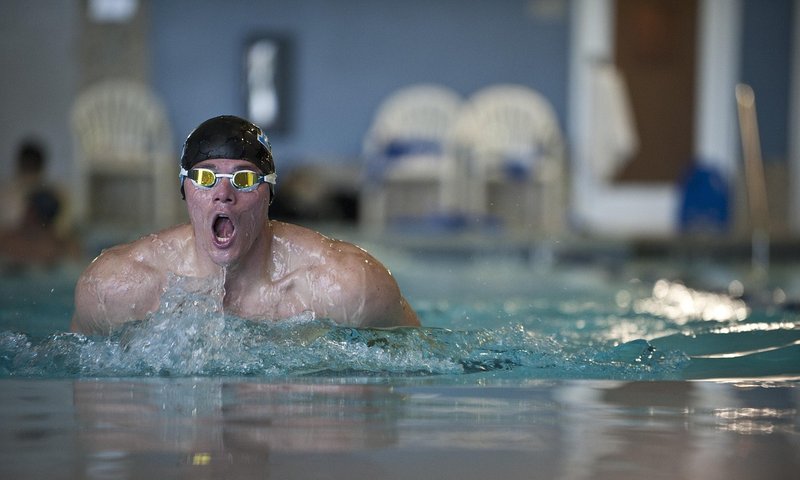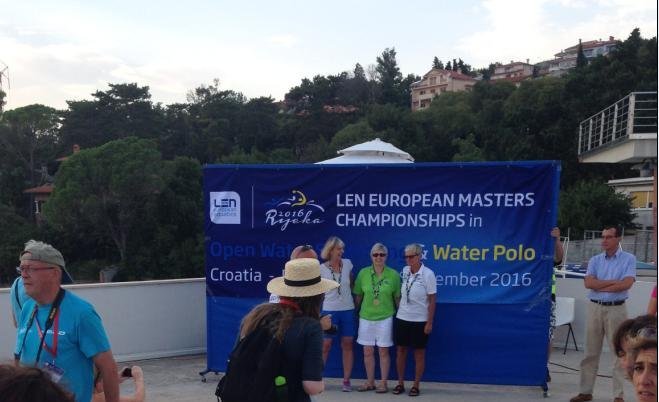Swimming in the category of Masters - is swimming for those who have crossed the 25 year mark.
The Story
The movement has its origins in the 1970s in America, when a group of "old" swimmers: Navy - doctor Captain Ransom J. Arthur, MD, dentist Ken Kimball, a military psychiatrist Richard Rahe, MD and the president of the American Association for swimming coaches John Spannuth, all around the age of 40, decided that they were all still able to compete. Thanks to their ideas, energy and desire to lead an active life, the first national championship in swimming in the category “Masters”, was held on May 2, 1970, in Amarillo (Amarillo, Texas), which was attended by 31 men and 14 women. Ransom J. Arthur, felt that his initiative was supported. Now swimmers, former and beginners, have an incentive to keep fit.
Competitions
Obsession for swimming offers the chance to compete. This is something that allows you to record your achievements, have the ability to meet and talk with old friends and make new ones. The age at which an athlete can take part in competitions Masters is 25 years. Age groups are of 5 years. The age group determines the winner of the competition, at the same time record achievements are fixed. The most significant events are World and European Championships. The World Games for Masters are held once every 4 years, by analogy with the Olympic Games. Global and European achievements are registered, as well as, annual rankings of the strongest athletes in the world and Europe (TOP 10). To get into such a rating is a dream of any Masters athlete.
Clubs
Masters Movement has developed worldwide as a club movement, therefore an athlete participating in the competition, represents his or her sports club, and not the country or the national team. What are the advantages of being a member in a club? Firstly, an association of like-minded, with passion for swimming. Methodology of training, swimming techniques and the results are an eternal theme of discussion among colleagues. Second, information and organizational support when the most active members are ready to take responsibility for the formation of a team, application, purchase tickets, hotel booking etc. Participation in relays are presupposed by different teams. Nothing is more valuable than a victory in the relay swimming. And the passion in a hockey playoff tournament. The common form of joint training, travel to camps and competitions is another argument in favor of the club.
A little bit about terminology and why Masters as opposed to veterans or seniors
At the beginning of the movement (90’s.) In Latvia could not be determine the name of the category of athletes. The terms: veterans, seniors (veterāni, seniori) were tried. The modern academic dictionary in the Latvian language for the word "veteran" in English translates as senior (veteran). Meanwhile, in English, senior - is someone senior in age, an old man. A man standing above the rank, a veteran – an experienced warrior, the old veteran soldier, a former soldier (obviously gone from the time of ancient Rome, where veterans called the soldiers who served 20 years in the army). I.e English has a little different concepts.
According to the dictionary Dahl, a veteran is an elderly campaigner , a high official, officer, or the doer in the field, especially in the military, decrepit soldiers; Honored Elder. That is a veteran is a former soldier. Senor in Western Europe in the Middle Ages - a feudal lord, the landlord (owner seigneur), depending on which peasants were (and often the townspeople).
Masters English - a specialist, an expert, the winner (the best in any field).
Senior in Italian – athlete of the highest category but even the Italians generally use the term Masters.
We propose to use as the standard in the world Masters, which is clear to any swimmer.
Trends
Even in the presence of benchmarking at the World Championships 2012 in Riccione, Italy, attended by almost 10,000 swimmers! This confirms that the interest in swimming in the category Masters is increasing. To regularize the situation, the international federation of water sports (FINA) and the organizers of the competition place demands on the participants. For example, to take part in a competition, the athlete must be a member of a clubs. This is motivated by the desire to build a relationship with the clubs, be able to control declared applicants, the competition results, etc.
Natalia Alexandrova, Edgar Ozolins




